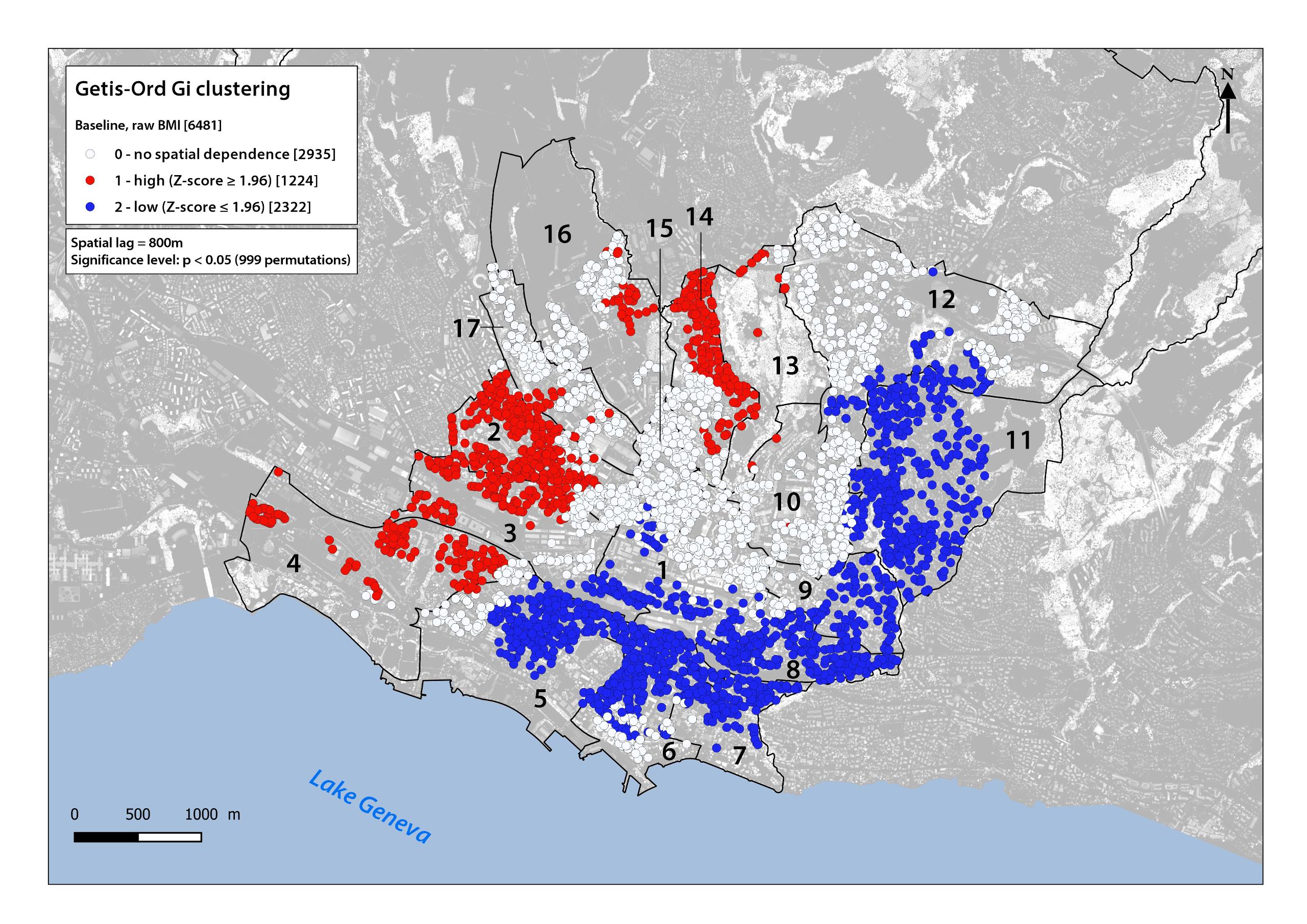Could urban living cause weight gain?

A study using the citizens of Lausanne to map excess weight around the city has defied all the usual explanations, suggesting that urbanism may be a key factor in obesity.
Researchers have long known that while genetics play a role, the main causes of excess weight have to do with the social environment – for example, obesity levels in low-income groups tend to be above average in the United States and Europe.
Doctors and geographers have produced a body-mass index (BMI) map for the western Swiss city of Lausanne that shows a clear correlation between low income and obesity: the working class neighbourhoods on the western side of the city are red (above average BMI), while middle-class suburbs are blue (below average BMI).

But the usual factors – education, income, age, health, ethnicity, gender and alcohol consumption – could not account for the western Lausanne residents’ extra weight, researchers say.
This led them to hypothesize that urban living could be a factor, according to a joint statementExternal link by the Federal Institute of Technology Lausanne (EPFL), the Lausanne University Hospital (CHUV) and the Geneva University Hospital.
Their findings have been published in the British Medical Journal Open.External link
6,000 residents
More than 6,000 Lausanne residents volunteered to take part in the CoLaus study. The survey was run twice, six years apart, with the same people. This anonymous data was then used for the mapping study.
The geographers commonly use a weighting method to corroborate their results, so adjusting the BMI readings for all the factors known to affect weight, including income, education level, age and some other factors, explained Stéphane Joost, a researcher at EPFL. They were expecting the coloured zones to thus disappear.
But the map of western Switzerland remained red. “This means that there are other factors we missed, or that their interaction is more complex than we thought,” Joost said.
Urbanism could be key to a better understanding of the causes of obesity, believes doctor and epidemiologist Idris Guessous, who is the study’s co-author.
Fast food, less exercise?
Is it a question of distance from green spaces, access to stores and fastfood restaurants, or geographical compartmentalisation, wonders Guessous? And what about spatial dependence, a phenomenon that further intensifies differences between neighborhoods? “We tend to look and act like our neighbours, despite potentially sharp sociocultural differences,” he said.
If urbanism does indeed play an important role in obesity, this could lead to new ways to address the problem.
“You cannot change your age, it’s not easy to act on your educational level, and equal income for all is the stuff of utopia,” said Guessous. “But we can do something about city living. Once we’ve gained a better understanding of the role of urbanism, we’ll be able to look at the more affluent suburbs and get idea on how to improve disadvantaged neighbourhoods.”

In compliance with the JTI standards
More: SWI swissinfo.ch certified by the Journalism Trust Initiative



You can find an overview of ongoing debates with our journalists here. Please join us!
If you want to start a conversation about a topic raised in this article or want to report factual errors, email us at english@swissinfo.ch.